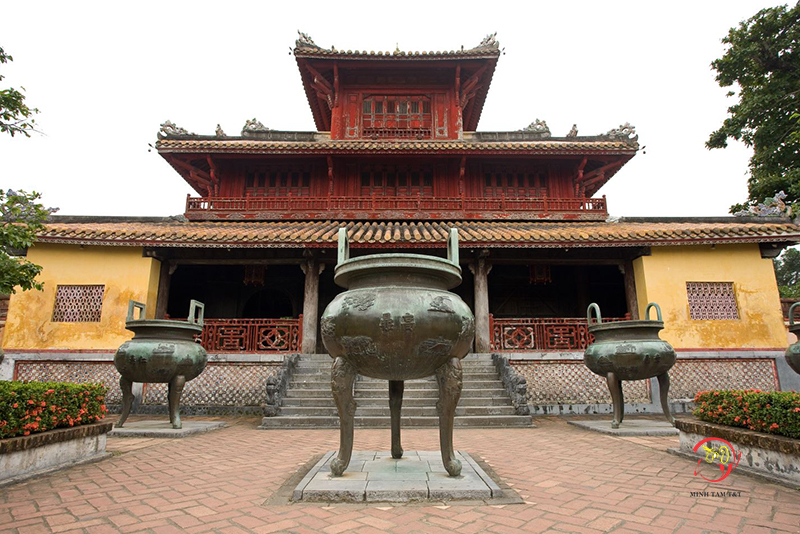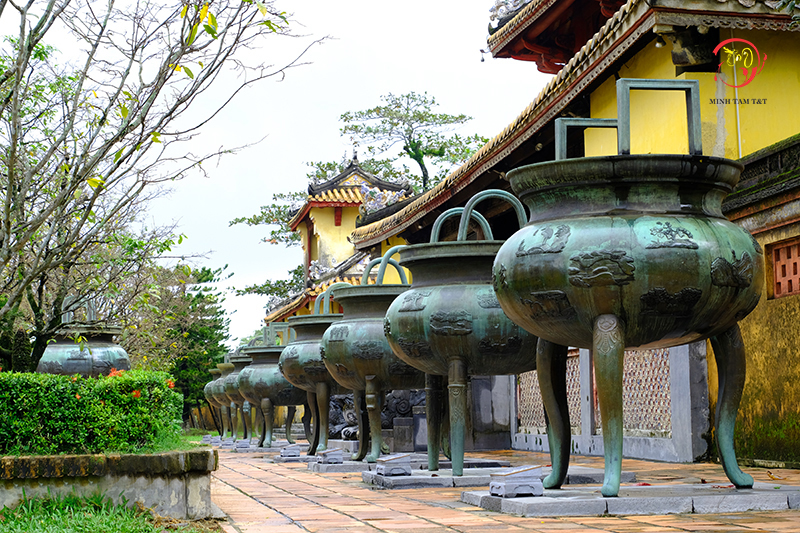Location: Nine Dynastic Urns are located in the shade of the Hien Lam Pavilion, in front of the The Mieu Temple.
Characteristics: The nine Dynastic Urns are the greatest bronze ones in Vietnam They were cast by Emperor Minh Mang in 1836 to symbolize the sovereignty of the dynasty.

Each of them is named after the posthumous title of the emperors worshipped in the The Mieu Temple. For example, Cao Urn is named after Emperor The To Cao (Gia Long), Nhan Urn after Emperor Thanh To Nhan (Minh Mang), Chuong, Anh, Nghi, Tuyen and Thuan Urns after Emperors Thieu Tri, Tu Duc, Kien Phuoc, Dong Khanh and Khai Dinh respectively. (Until 1958 only seven altars were established in The Mieu Temple corresponding to seven urns. Du and Huyen Urns did not exist yet).
After their casting, the Nine Dynastic Urns were placed in accordance with the disposition of the altars in the Temple. Cao Urn stands in the center, alone in the first row. The others line behind and are placed symmetrically on both sides. On each urn are 17 traditional Vietnamese patterns like stars, rivers, mountains, seas and oceans, vehicles, valuable forestry and sea products, etc. The 153 patterns on the 9 urns constitute a real encyclopedia on the country. This precious cultural heritage is incredibly well-preserved in spite of the harsh weather and the numerous wars.

At first sight, the nine urns are almost alike, but in fact, they all differ in weight and size:
Name-Height-Height of handle-Legs-Mouth-Weight
Cao Urn-2.50m -0.48m-1.05m-1.38m-2,601kg
Nhan Urn-2.31 -0.42-0.87-1.36-2,512
Chuong Urn-2.27 -0.41-0.95-1.35-2,097
Anh Urn-2.25 -0.42-0.94 -1.37-2,595
Nghi Urn-2.31 -0.41-0.89 -1.37-2,575
Thuan Urn-2.32 -0.42-0.95 -1.36-1,950
Tuyen Urn-2.45 -0.54-0.93 -1.37-2,066
Du Urn-2.34 -0.43-0.96 -1.38-2,018
Huyen Urn-2.31 -0.41-0.95 -1.41-1,935
Source: Vietnamtourism.vn
